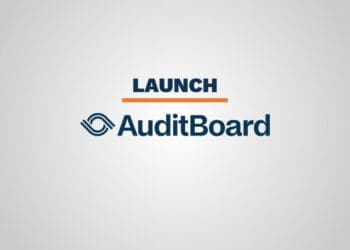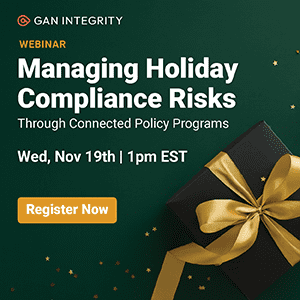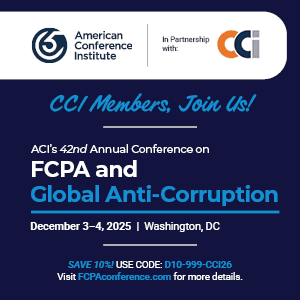Corporate Compliance Insights’ Founder and CEO, Maurice Gilbert, spoke recently with Richard H. Girgenti, J.D., KPMG LLP’s Forensic Advisory Services National and Americas Leader about Brazil’s scandals and how corruption has had a corrosive effect on the economy, creating political uncertainty in the days leading up to the Olympics and the expectations that it would showcase Brazil’s hoped-for resurgence. In this Q&A, Girgenti explains how Brazil is a perfect example of the harm corruption can cause a nation, from top to bottom, and how it cast an unintended shadow on the Olympics.
Girgenti is the co-author of the new book, The New Era of Regulatory Enforcement: A Comprehensive Guide for Raising the Bar to Manage Risk, with Timothy P. Hedley, Ph.D., KPMG’s Global Lead for Fraud Risk Management Services.
Maurice Gilbert: What has been the economic and political impact of corruption in Brazil?
Richard Girgenti: Brazil is experiencing its worst recession in two decades, and it’s due in large part to corruption and the political and economic uncertainty that it has generated. In 2015, Brazil’s economy contracted by nearly 4 percent. The Brazil Real is at a 10-year low, unemployment has been rising and wages have been falling. Government debt is growing, while inflation and interest rates are surging. Between 2014 and 2015, foreign direct investment in Brazil dropped 12 percent.
The impact of corruption on this economic decline cannot be overstated. It’s estimated that 3 to 5 percent of Brazil’s GDP is lost to corruption each year. Prior to a corruption scandal, state-controlled oil company Petrobras was the country’s largest company and investor – accounting for approximately 10 percent of the Brazil economy. Thanks to the Petrobras scandal, the nation experienced approximately $27 billion (at least 1 percent) in GDP loss in 2015. Petrobras is also one of Brazil’s largest employers and has reduced its workforce by approximately 34 percent since the end of 2013. Earlier this year, the company announced plans to further reduce its headcount by thousands more. Additionally, Petrobras slashed its investment plan by 25 percent for the period 2015-2019.
Oil and gas service firms, construction and engineering firms have been hit especially hard. Two construction companies that colluded with Petrobras have filed for bankruptcy, and thousands of workers in the construction industry were laid off in 2015.
The direct result of this corruption-related economic decline has been political unrest, uncertainty and drastic cuts in public spending. The Rio state police budget, for example, was reduced by more than $600 million. In addition to the direct impact of budget reductions, there’s also been an indirect impact on the Olympics, where the budget was cut approximately $500 million by Olympic organizers. The corruption investigation has been expansive, and also now included all aspects of preparation for the Olympics from delays in major infrastructure construction (the 10-mile rail line connecting the beaches to the Olympic Park), the construction of the Olympic venues, the federal funds that were earmarked for the cleaning of Guanabara Bay (the site of the Olympic sailing events) and fraud related to the disposal of construction waste.
MG: Leading up to the Olympics, Brazilian prosecutors increased their focus on corruption. To what do you attribute this increased attention on prosecuting corruption?
RG: Over the last few years, the crackdown on corruption in Brazil has accelerated dramatically and the country has heightened its focus on corruption as evidenced by a series of new laws and aggressive anti-bribery enforcement activity.
In 2005, Brazil became a party to the UN Convention against Corruption. In August 2013, Brazil enacted a new anti-corruption law, the Clean Company Act, which went into effect at the end of January 2014. The law imposed civil and administrative liability on domestic and foreign companies for acts of corruption and bid rigging by their employees and agents. The Brazilian Criminal Code also provides for criminal liability for individuals who engage in bribery of domestic and foreign public officials. Designed after regulations and guidance in the U.S. and U.K., this law was soon followed by regulations that provided leniency for the implementation of effective compliance programs. Soon thereafter, the government issued guidelines for private corporations outlining the hallmarks of a corporate integrity program.
The Clean Company Act was only one of several measures that dramatically altered the enforcement landscape in Brazil. A second significant weapon added to the anti-corruption arsenal was the 2013 Organized Crime Law. Aimed initially at drug trafficking and violent organized protesters, the laws’ obstruction of justice and plea bargaining provisions have been used in the Petrobras investigation to incentivize reluctant witnesses to cooperate and open the door for the extensive investigation that followed.
Public prosecutors, armed with significant new laws and regulations and supported by growing public sentiment that blamed much of Brazil’s economic woes on perceived systemic government corruption, conducted one of the largest international anti-corruption enforcement actions against the Brazilian-controlled oil company Petrobras.
Over 200 individuals have been investigated due to the ongoing scrutiny of the Petrobras matter (Operation Carwash) and related investigations it has spawned, with over 100 arrested or indicted and over 90 people convicted.
MG: If U.S. companies get their business activities unknowingly wrapped up in corruption with dishonest Brazilian companies and Brazilian government officials, can the U.S. companies be held liable?
RG: Absolutely. There is currently an unprecedented level of cooperation between U.S. and Brazilian prosecutors, and U.S. companies need to not only be concerned about the Department of Justice (DOJ) and Securities and Exchange Commission (SEC) enforcement of the Foreign Corrupt Practices Act (FCPA), but they must also now be aware that there is a new regime of anti-corruption enforcement by Brazilian prosecutors. Companies face more risk now by doing business in Brazil, and there are significantly more challenges they need to address to mitigate the dangers of getting caught up in corruption activity and the potential enforcement that might result.
MG: How can companies doing business in Brazil address the heightened risk created by this new level of anti-corruption enforcement activity?
RG: Companies need to have a comprehensive and effective anti-bribery program that has the components of prevention, detection and response, in order to adequately address the risks of corruption in Brazil.
Companies can begin by examining guidance provided by Brazilian authorities. In September 2015, Brazil’s Comptroller General’s Office issued “Integrity Programs – Guidelines for Private Corporations,” outlining five hallmarks of a corporate integrity program: (1) tone at the top, (2) an empowered compliance function, (3) a risk-based integrity program tailored to the company’s risk profile, (4) structuring of corporate compliance rules and procedures and (5) monitoring and testing.
Since U.S. companies are also subject to prosecution under the FCPA for corrupt activity in Brazil, guidance applicable to U.S. law is also critical. According to the “Resource Guide to the U.S. Foreign Corrupt Practices Act,” when the DOJ and SEC evaluate the effectiveness of a compliance program, they will look to answer three questions:
- Is the company’s compliance program well designed?
- Is it being applied in good faith?
- Does it work?
To answer these questions, the Guide published “10 Hallmarks of an Effective Compliance Program” to help companies identify the necessary measures they need to take:
- Commitment from senior management against corruption, and a clearly articulated policy
- Code of conduct and compliance policies and procedures
- Oversight, autonomy and resources
- Risk assessments
- Training and continuing advice
- Incentives and disciplinary measures
- Third-party due diligence and payments
- Confidential reporting and internal investigation
- Periodic testing and review for continuous improvement
- Mergers and acquisitions: pre-acquisition due diligence and post-acquisition integrations
Richard H. Girgenti, co-author of The New Era of Regulatory Enforcement and the National and Americas Leader for KPMG LLP’s Forensic Advisory Services, has over 40 years of experience conducting investigations and providing compliance and fraud risk management advisory services to public and private corporations, government entities and not-for-profit organizations. Prior to joining KPMG, Girgenti was a veteran prosecutor and held a number of high-level legal and law enforcement positions including New York State Director of Criminal Justice and Commissioner of the Division of Criminal Justice Services.













